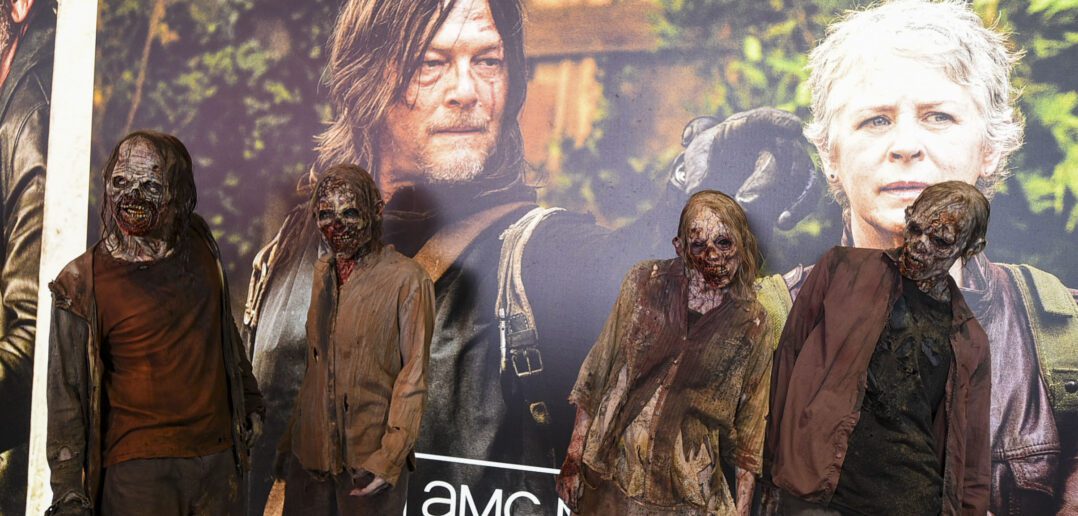Day two of this year’s MIPCOM CANNES was as bustling as day one, with an array of sessions exploring current trends and future innovations across the media landscape. From creators’ expanded ambitions to YouTube monetisation tips, via the evolution of brand storytelling, and trends in sports streaming – not to mention zombies! – it was a thought-provoking day. Here’s our day two wrap.
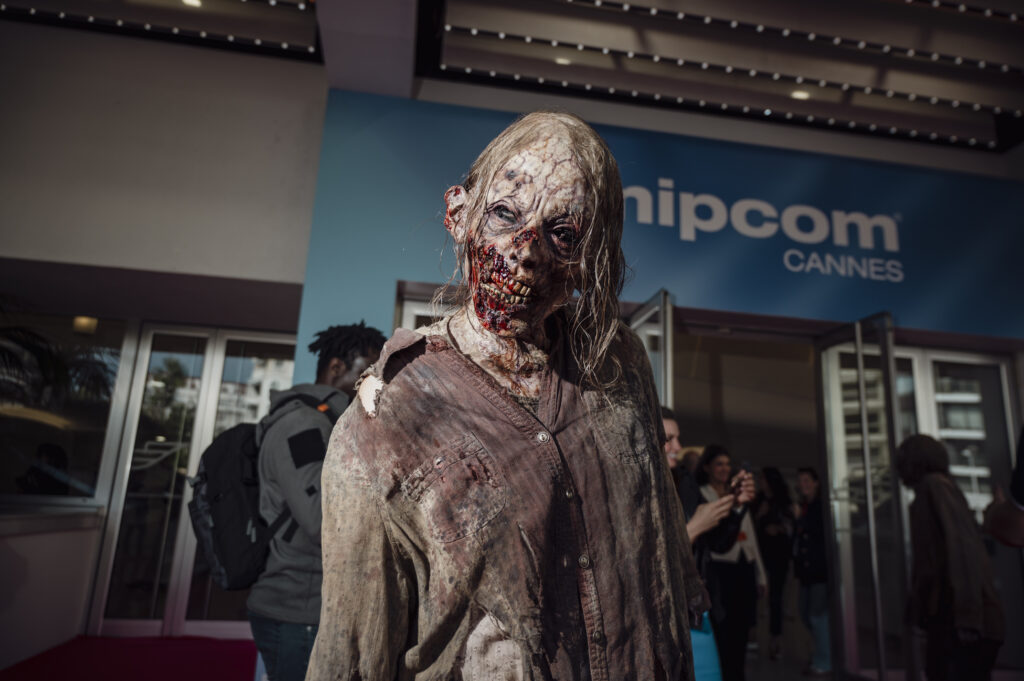
The Walking Dead: ‘It’s human connection. It always has been’
AMC Networks celebrated the enduring zombie franchise’s 15th anniversary
Attendees of this afternoon’s session about The Walking Dead got more than they bargained for: a group of zombies shambling, growling and (on request) posing for selfies with the Grand Audi crowd. The session itself saw AMC Networks executives and talent talking about why its humans are the emotional core of the franchise.
“The very first script I ever read for this show, I didn’t even read zombies into it… It’s always been about the human connection,” said Norman Reedus, who plays Daryl Dixon. “This is your chance to figure out who you want to be in a situation. You’re safer in numbers. Who do you align with? Who can you tell has your worst interests in mind? That is the core of the show. Who are you gonna be? It’s human connection. It always has been since day one for me.”
AMC Networks CEO Kristin Dolan struck a similar note in her introduction to the session, while nodding towards the grisly fate that has met some of those humans.
“The secret to the success of The Walking Dead was never the zombies. It was the very human characters at the heart of the stories, and watching them adapt, struggle and survive,” said Dolan. “Or not.”
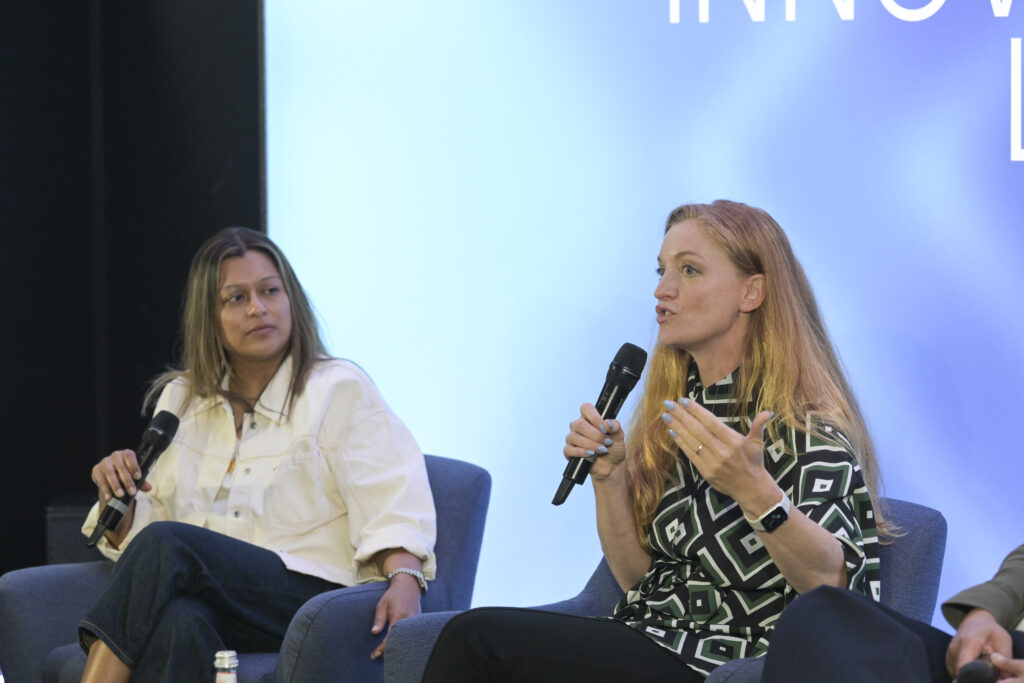
Creators can thrive on streaming platforms – if their talent is respected
They may start on TikTok and YouTube, but they can go all the way to AVOD and scripted commissions
One of the trends of this year’s MIPCOM CANNES is the awareness that creators are no longer restricted to making short-form content for YouTube, TikTok, Instagram and other video/social platforms.
A growing number are developing formats fit for AVOD services and FAST channels, for example. Some are even bagging scripted commissions. MIP Innovation Lab’s ‘The Rise of Independent Creators on Streaming Platforms’ session today dug into this trend.
Samsung TV Plus head of talent and creators Tamara Rothenberg said that the key to making creators a success on streaming platforms is focusing on their unique qualities. “It all goes back to the talent,” she said. “As producers it really goes back to ‘What is this person’s superpower as a creative?’ – and is the content authentic to that talent?”
Colin Petrie-Norris, CEO of Fairground Entertainment, said that it is key for creators to “know themselves, have an idea of their audience, and really speak to that audience. Really staying true to your audience is key.” He added that great stories are just as crucial. “If you want to hold attention for 45 minutes, you’ve got to have a story that resonates on a human level. That’s what distinguishes the very best from the others.”
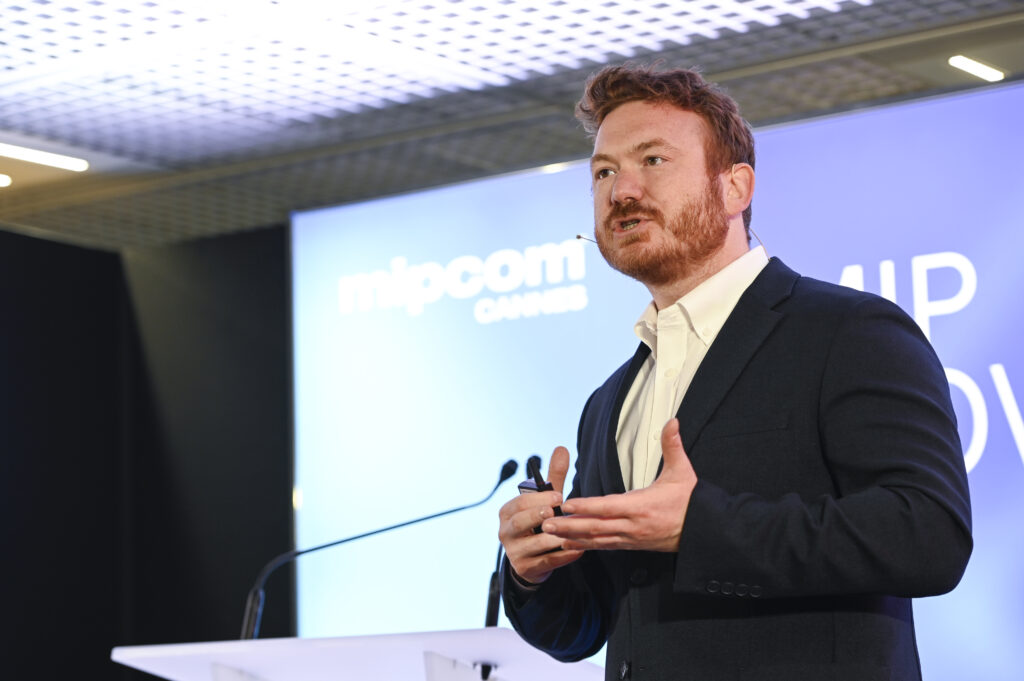
Making money on YouTube: catch-up, shoulder content, fandoms and more
Your media library can be turned into a global revenue powerhouse on YouTube
Reaching tens or even hundreds of millions of eyeballs on YouTube is nice, but turning that into sustainable revenues is the real challenge. A workshop in the MIP Innovation Lab today saw YouTube’s strategic partnerships manager Bora Basman and country manager Benelux Sam Vergauwen offer tips.
Basman, who works across Turkey and emerging markets, talked about some of the trends he has spotted there.
“In Turkey, YouTube is used as catch-up TV. Everything is uploaded there directly after transmission,” he said. Dubbing that content into different languages can then help it to reach new audiences. “Production companies can also create shoulder content around their Ips, while broadcasters can extend the shelf life of the IP and explore international monetisation.”
Vergauwen’s advice for channel owners was to explore partner integrations, putting their existing advertisers into sponsored segments. He also talked up “fandom monetisation” where paywalls, channel memberships, live events and ticketing can increase revenues.
Basman and Vergauwen were joined during the session by Ceyda Sila Cetinkaya, COO, global at Merzigo, which focuses on YouTube and Facebook monetisation, including managing more than 5,000 YouTube channels.
“Traditional media and broadcast is not the final destination; it’s just the starting point,” she said. “We believe that the future of broadcasting isn’t replacing TV – it’s extending it.”

Lea Karam: ‘The walls between different media sectors have collapsed’
But behavioural science tells us how companies in those sectors can react positively
Understanding human behaviours is the key to navigating the complex new media landscape, according to Mindscope CEO Lea Karam. She used her MIPCOM CANNES keynote this afternoon to explain how behavioural science can help content creators of all stripes.
“The walls between different media sectors have collapsed. Companies need to remove media siloes because audiences don’t differentiate between them, and neither should we,” she said. “Different media formats are just vessels of delivery, and integration happens in the human mind.”
Karam’s point was that media companies need to understand how the human mind moves through different formats; how audiences want to participate; and what motivates them.
She also warned the industry off another much-used buzzphrase: attention spans. “Our research has shown that it is not attention spans that have got shorter, but filter spans. There is so much content overload now that we are just much better at filtering out information,” Karam said.

Using AI for your content? The key will be how you prompt it…
Doug Scott encourages Brand Storytelling audience to be confident in their humanity
Serial media entrepreneur Doug Scott was one of the stars of the MIPCOM CANNES Brand Storytelling Summit, delivering a keynote in which he challenged delegates to “forget the past: everything you think you know, throw it out.”
Why? AI is one reason, although Scott told his audience that “I don’t like the term AI, because there is nothing artificial about intelligence. I prefer to think of it as data-led intelligence, because it is data that is enabling us to make decisions and deliver content to the target audience at the right time.”
Scott was also relaxed about AI’s emergence as a creative tool, suggesting that how humans prompt AI models will be the big differentiator.
“If you give two directors the same budget and the same script, you’ll get two different end results,” he said, suggesting that the same rule will apply to use of GenAI tools. “How you prompt AI will ultimately determine your final product.”
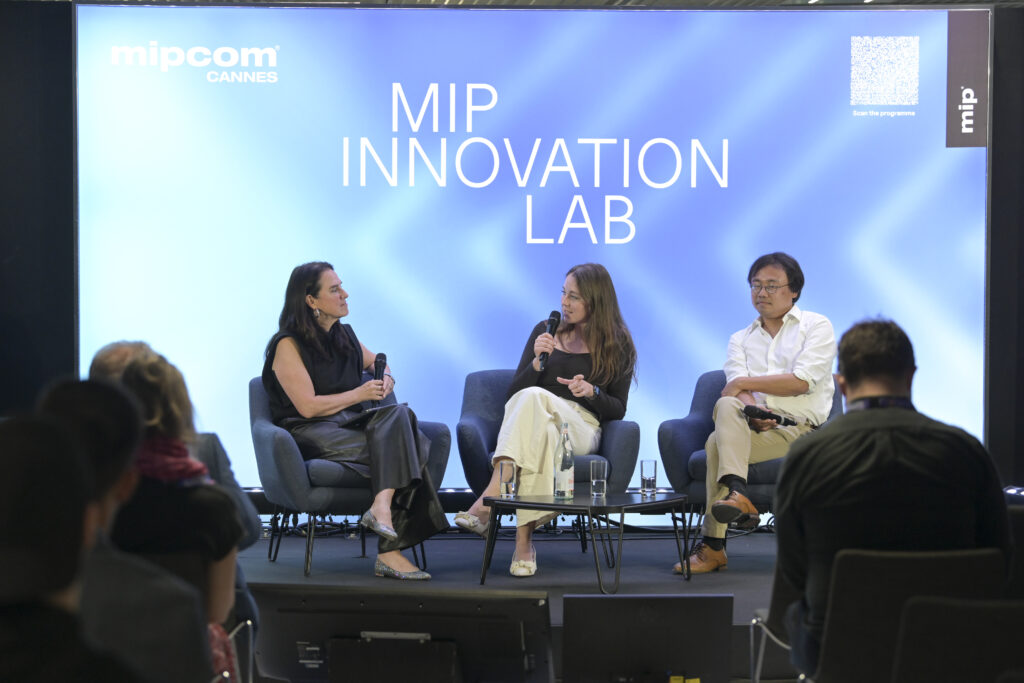
11.45 – 12.20 Sports on FAST + DAZN (Ben)
Sports television has entered the streaming age. DAZN and Xumo outlined the opportunities
DAZN has been one of the prime movers in the latest evolution of sports broadcasting. This afternoon its senior vice president media Central Europe, Haruka Gruber, and its vice president advertising Lisa Eller offered their vision for sports streaming across SVOD, AVOD and FAST.
Eller said that providers have to be conscious of the new ways modern audiences are engaging with sports, and “the expectations that come along with the audience”. Those include “additional services, additional channels that they can interact with… For us as a rights holder and as a platform, that means we have to create a whole ecosystem to make sure that we reach the audience in whichever context they want to use our services.”
Gruber also used the session to call for sports rights holders to do more to fight piracy, which reportedly costs the industry some $28bn per year: for example when people use VPNs [virtual private networks]to watch illegally. “Nobody’s ashamed to say that they use VPNs but they really should be, because they are really threatening the whole business model,” he said. “That’s something that we all need to focus on.”
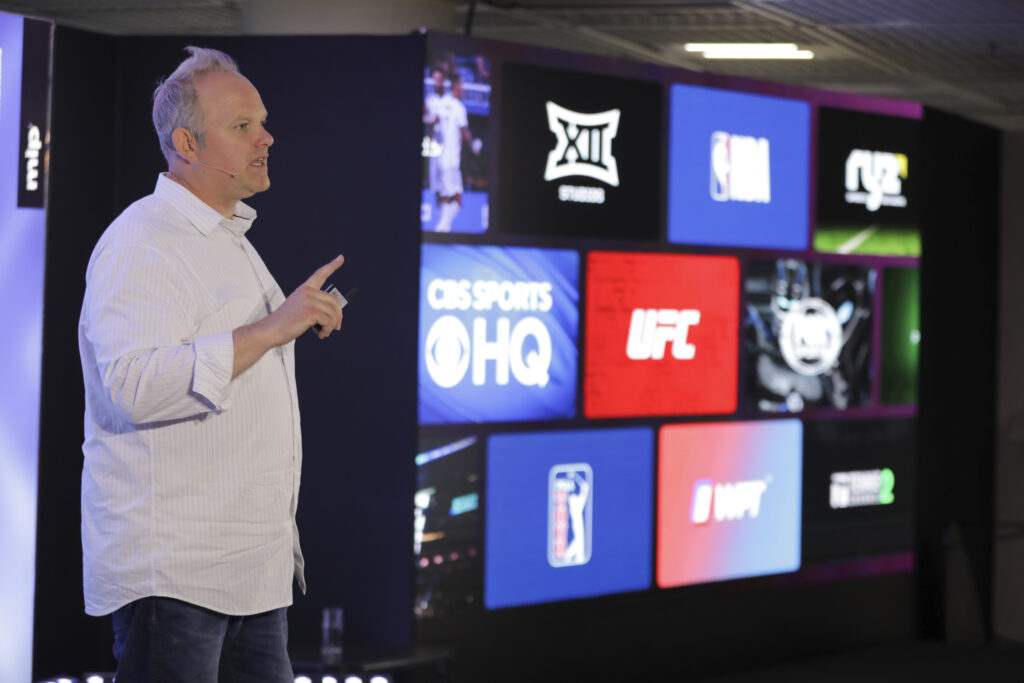
DAZN’s session was preceded by a presentation from Xumo, Comcast and Charter’s streaming platform joint venture. VP, content partnership, acquisition, distribution and experience Stefan VanEngen talked about how sports programming is enjoying a new lease of life on FAST.
“The highlight-driven, information-driven sports channels that are available for free to users are engaging and are increasing their stickiness amongst fans,” said VanEngen. He pointed to the success of Xumo’s NFL-focused American football channel as an example.
“We don’t have live NFL games on FAST, and that channel is widely distributed across multiple platforms, but they do live informational sessions all Sunday afternoon, and the engagement has grown month-over-month as the season continues,” he said. “They’re not leaving. They’re sticking around for 45 to 60 minutes just to get their information, their highlights.”

